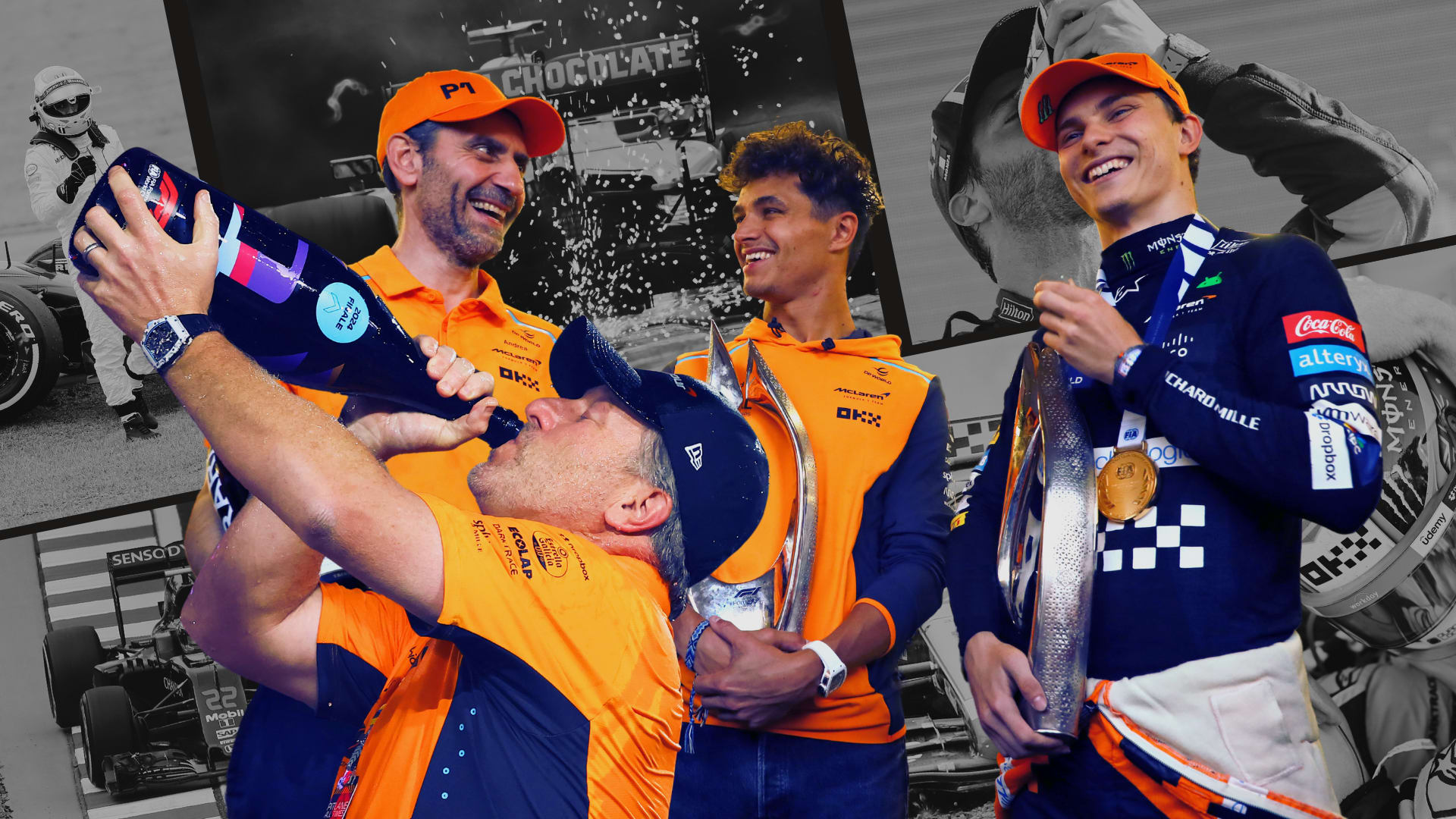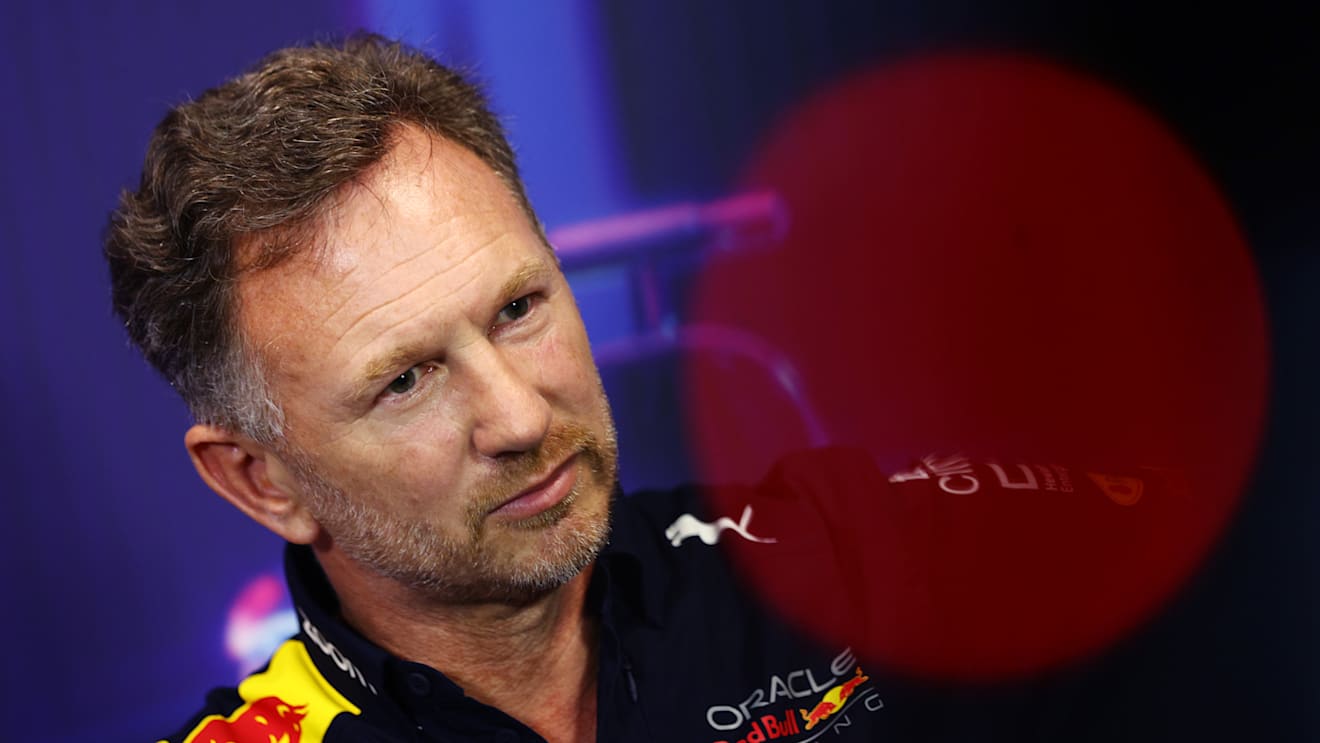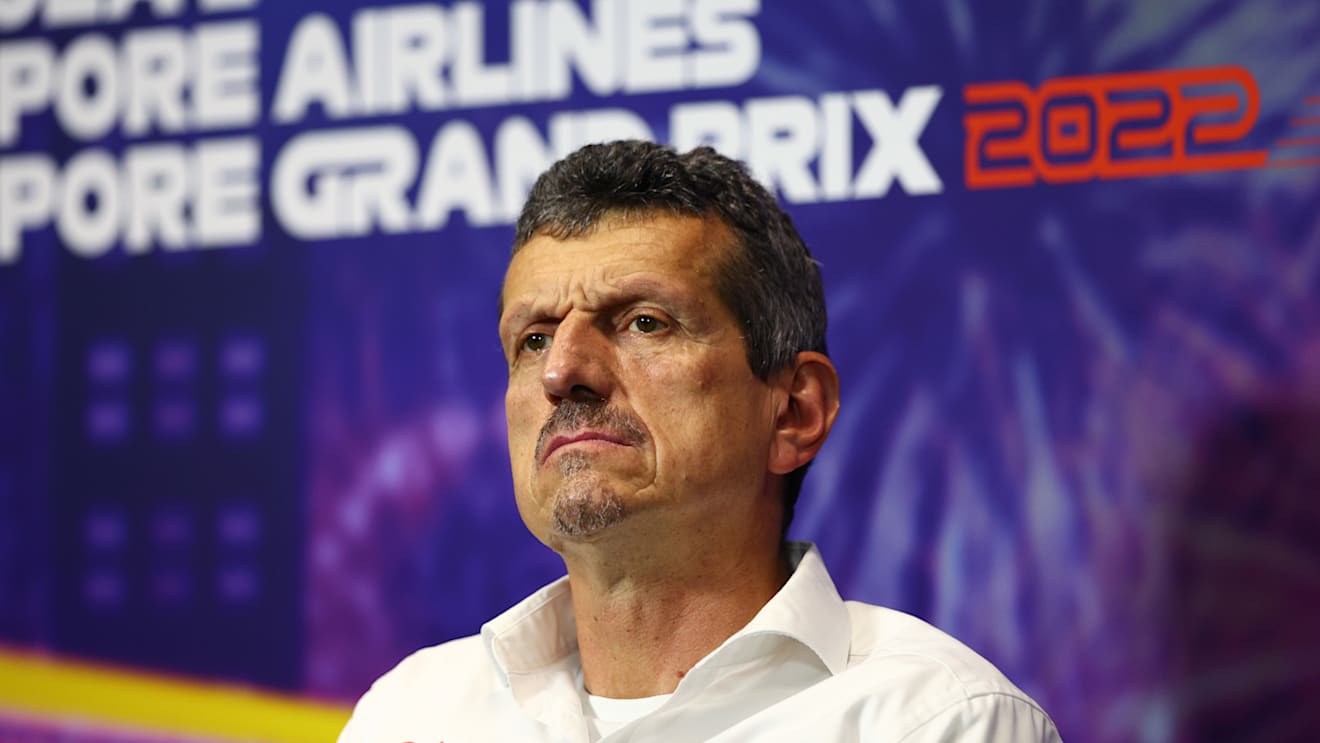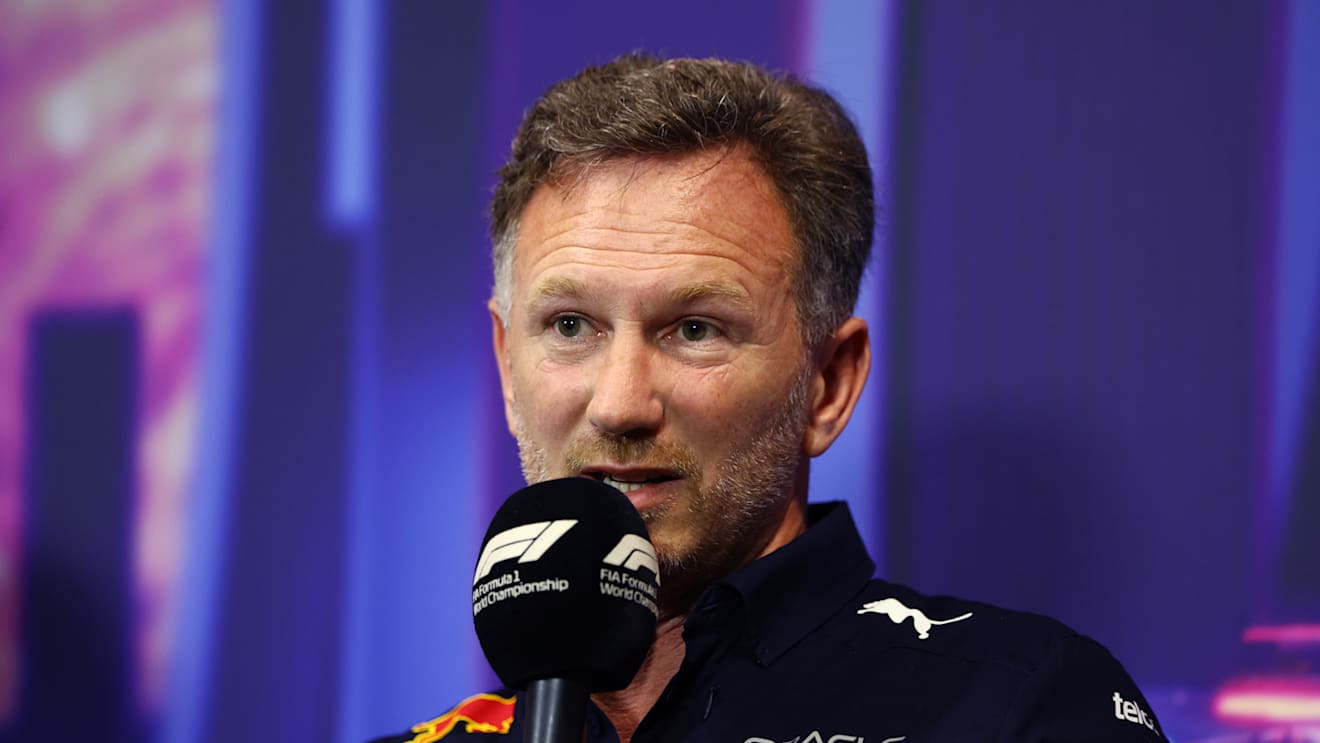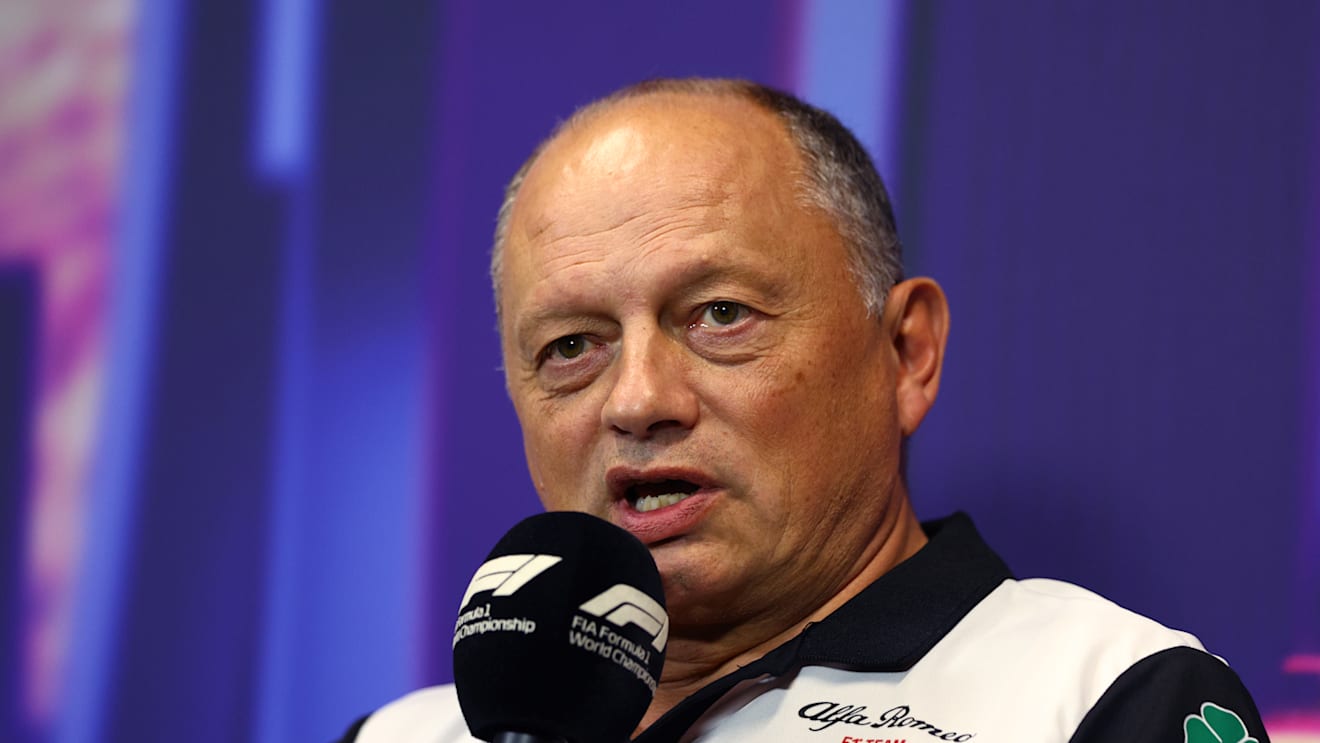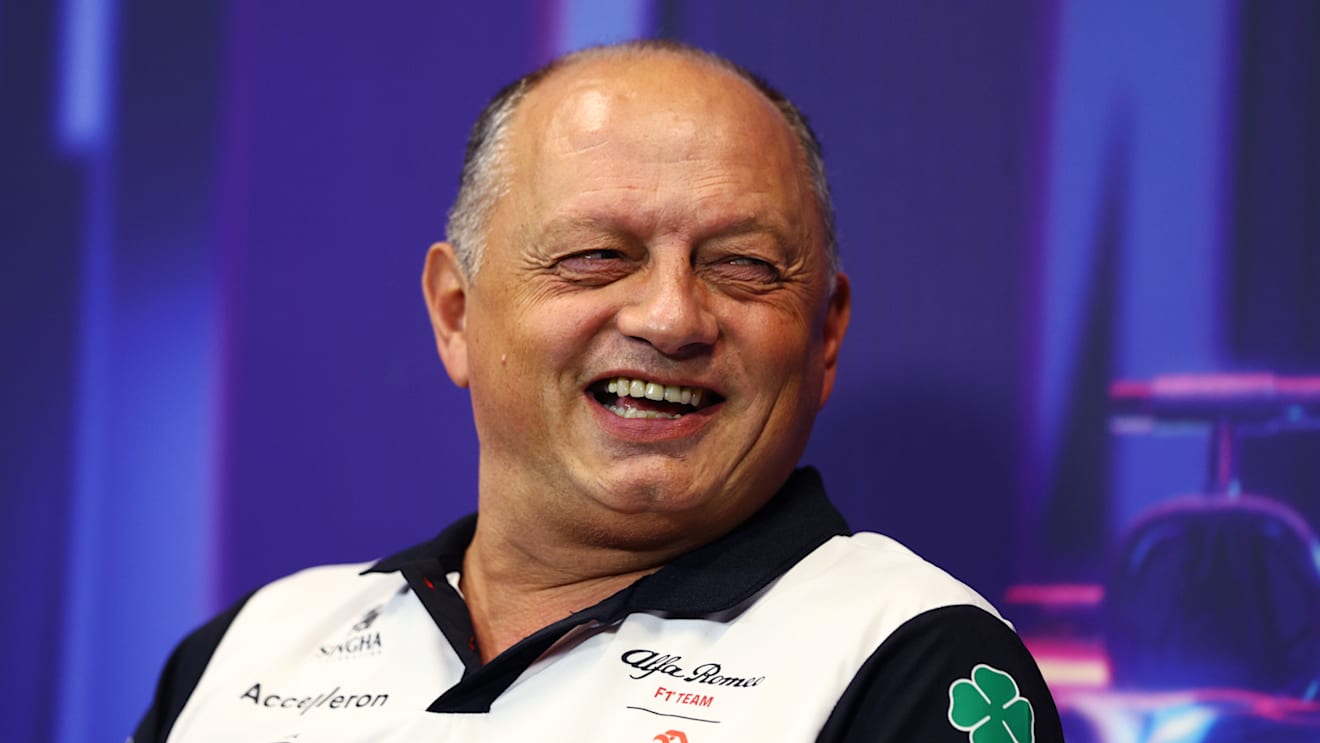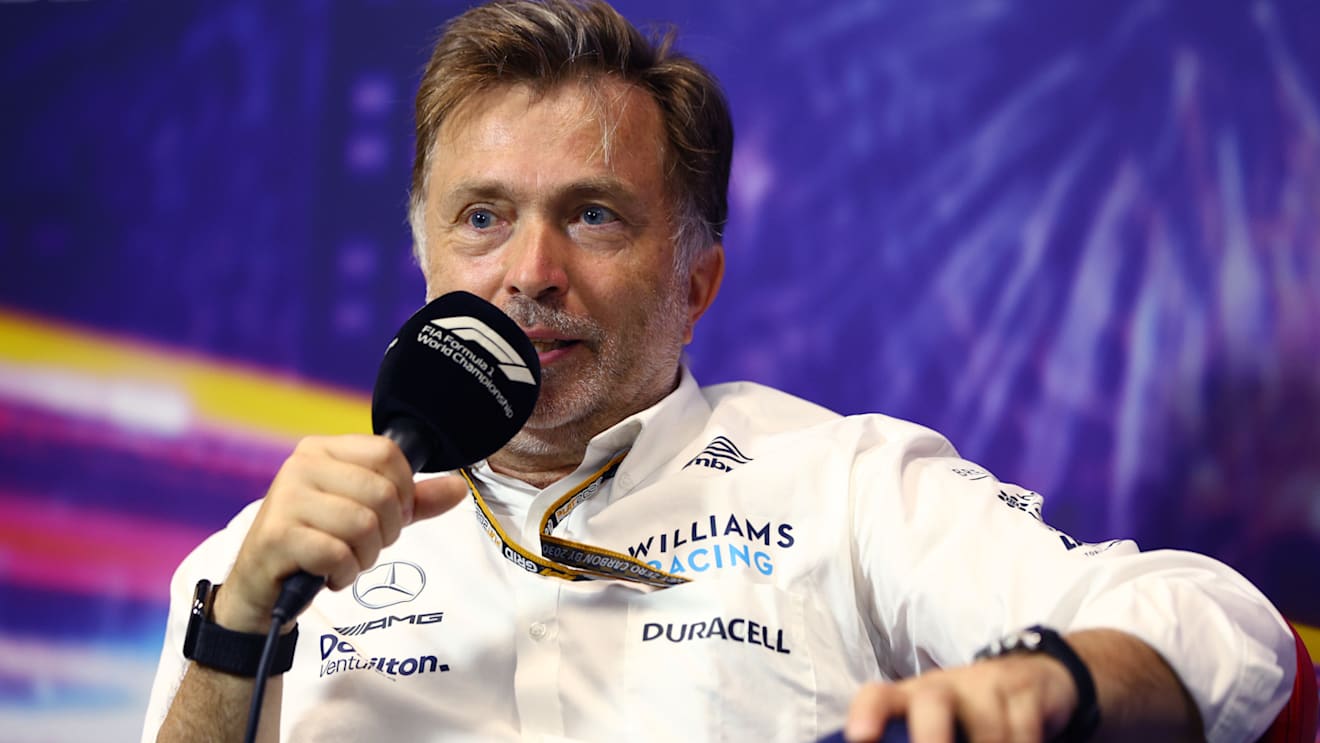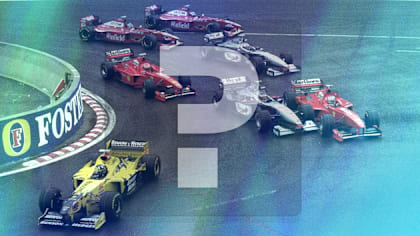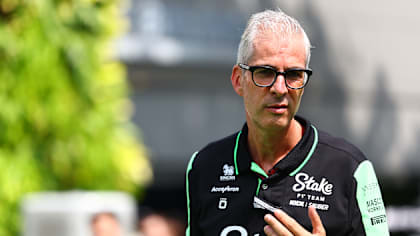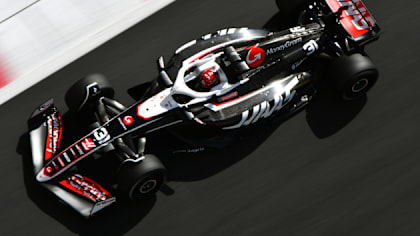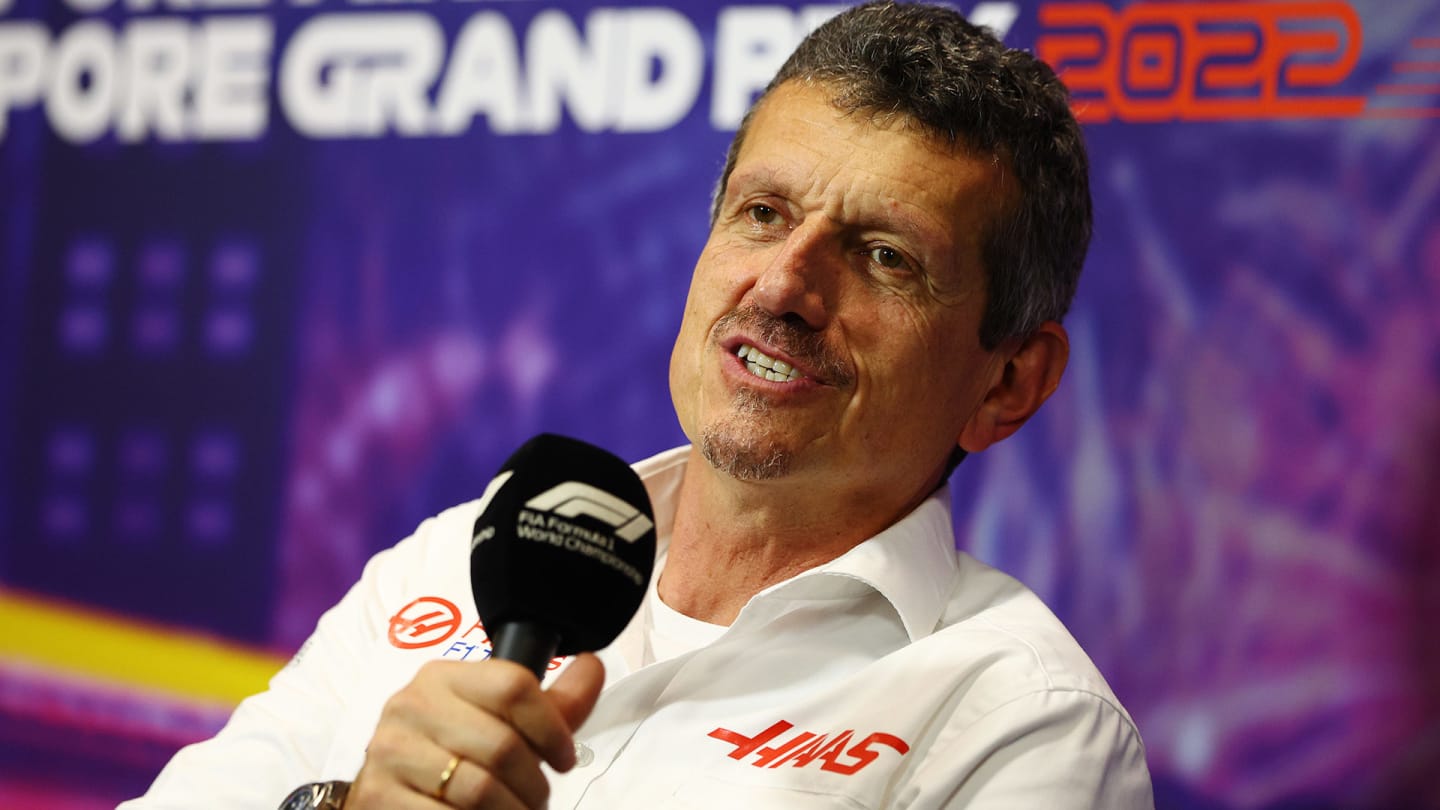
News
FIA Team Principals press conference - Singapore
Share

TEAM REPRESENTATIVES - Part One: Guenther STEINER (Haas) Frédéric VASSEUR (Alfa Romeo), Laurent MEKIES (Ferrari)
Q: Fred, let’s start by discussing some news that broke last week regarding your second driver for 2023. What convinced you to retain Zhou Guanyu?
Frédéric VASSEUR: So far, he had a very good season from the beginning. But in terms of pure performance, that the target was to do some Q2 and he did Q2 on the first event, he scored one point on the first event also. On the top of the performance, I would say that the human side was crucial because he did a very good job with us. He is a strong team player and it was important for us at the end of the day. I think it's the right choice to continue.
Q: In what areas has he improved the most as the year’s gone on?
FV: It's not just about speed, for sure. When you come from F2 and you have to learn some tracks at the beginning of the season, it’s always a bit difficult, but I think he improved quickly into the season in terms of pace. Now it's more about the technical side: how to approach the weekend; how to manage the weekend. And sometimes he's a bit prudent on the first couple of laps but now we know him, we know that he's about to do the step and I'm quite confident for next year also.
Q: And where would you like to see him grow next year?
FV: For sure we have to do a step but, you know, in our business we have to improve everywhere and at every single session but for sure we want to be faster and it's just not just about Zhou or about Valtteri. We have also to do a better job on your side but the commitment from Zhou is always a good one. This is the most important: the mood into the team is good and he’s part of this, and the combination with Valtteri is the perfect one. Now, for sure we have to improve in terms of performance but as everybody – and if you ask the same question to my colleagues, they will have the same answer.
Q: Let's bring it on to this weekend now. Yesterday looked good. What lessons have you learned since Monaco that's been able to help you here?
FV: You can't compare Monaco and Singapore – I think the car is completely different but everybody is improving and even if the rate of development is probably a bit lower this season, but the car is different compared to Monaco and Monaco was a bit special. I think that we made a mistake and we lost the FP1 and part of the FP2 and we were late from the beginning of the weekend and this was very difficult to manage. It was probably that the results were a bit under our expectation. But I think the pace was decent. It's just that we are late compared to the group and the group is so tight between P6-7 to P18-19 that sometimes you can lose the weekend like this.
Q: Laurent, Ferrari were winners last time out in Singapore and yesterday looked good. How confident are you of a repeat win this year?
Laurent MEKIES: Well, you’re right: 2019 was a very good memory. It was a tight fight at the time with Mercedes and it was very good to ultimately put both our cars up there. It’s a very different picture this year: it's going to be a three-way fight as it has been in the last few races. So, we expect not only Red Bull but also Mercedes to be in the fight for the win with us this weekend. So, it's still a long way for a repeat of the performance but you know, it's the sort of fight we love, and we are here for that.
Q: Charles didn’t have the smoothest of days yesterday, he lost quite a bit of track time. Do you feel he's going into qualifying on the back foot?
LM: Well, Fred has mentioned it earlier, on this type of track, like Monaco, like here, you don't want to lose track time. Unfortunately for various different reasons that's what happened with Charles yesterday. Nothing he could do about it, but he's very experienced now. We will try to play catch-up a little bit today with FP3 programmes, a bit more time on the track for him hopefully. If the weather allows, and I'm sure that by the time qualifying comes and the race comes, he will be fully up to speed.
Q: Now, let’s look at the bigger picture. Ferrari, are lying second in both championships but a long way behind Max Verstappen and Red Bull. What are the goals for you guys in these last six races?
LM: You know, it's very important that we keep improving. And that's what we have been saying all year long. We've made a great step this year, but we are perfectly aware that there are more steps to come. And we are using every single race to improve as a team, to improve on how we deliver and how we execute, and how we work together. And these last six races are important for us to do further steps to bring some good dynamic into the winter and to continue to move on.
Q: And where's the focus at the factory right now? Charles said he wants it to be on 2023. Do you agree with him?
LM: You know, I think it's right. You know, I think it's probably the focus of most teams right now. So certainly, as far as we are concerned, as far as development of the car is concerned, yes. So the focus is now on 2023. So it's a fair thing, it's two flows that goes in parallel: on one side, the focus at the factory looks at the 2023 car development. On the other side, at the racetrack. As we said, we want to fight for the wins, we want to take every single opportunity to become a sharper team.
Q: Guenther, coming into this weekend, you hoped that the slower corners here at Marina Bay would suit your car. Was that the case yesterday, which you described as ‘flawless’?
Guenther STEINER: No, I didn't say the slow corners were our advantage. I think it's the fast corners. It’s not the straight lines, but the slow corners are not an advantage to us. But no, yesterday, I think moving on for Monza here it suits the car better, as I said, But yesterday, I mean, the most important thing for us was to do a lot of laps. Kevin hasn’t been here since two years and Mick was never here, so I think the most speed you can find, specifically for Mick, is being out on the track. And therefore, that’s what we focused on, to do as much laps as possible, and then obviously always want to be fast. But that was not the main focus yesterday, we just wanted that he gets a good feeling, that he gets a confidence level, because he was never here, because as we all know, if it goes wrong here, normally it doesn't go easy on you. So that’s what we achieved yesterday, therefore it was flawless.
Q: What about the goals for the rest of the weekend?
GS: To improve. Like we all want to do, as was said before by my colleagues, we want always to improve and hopefully we can make some points. That is now the goal, every race.
Q: Another fastest lap for Kevin?
GS: I'm not so sure about if he can do that again but for sure he will be trying.
Q: It’s very tight in your area of the Constructors' Championship, you're just one point ahead of AlphaTauri now. Who do you think has the faster car between you and them?
GS: I don't know yet. I mean, it's very tight in the midfield, we don't know yet who's got the faster car. I think now it comes on who does a better job on the next five and a half weekends. That team will finish up seventh. And, I wouldn't count out Aston Martin. They were good yesterday, you know? So, there's quite a big fight for seventh place at the moment out there. But, I don't think anybody's specifically faster. It's more like you need to have a perfect weekend to score points because the big teams normally don't make mistakes or don't have any issues any more in the race, so we all know that the first eight places are gone and we are there to take the scraps basically, and who can get them, who takes the crumbs, will be in seventh place.
Q: Final one from me, concerning your second driver for next year. You're taking your time to decide who that's going to be. Why is that?
GS: Because we're not in a hurry. And there's not a lot of things moving. So why should I be in a hurry?
Q: But are you worried that you're going to miss out on opportunities if you don't make a decision soon?
GS: No.
Q: Well tell us what you're looking for in this second driver? What are you analysing? What do you need? What does Kevin need alongside him?
GS: That is what we are looking at. It's a little bit… What do we need to do to get the team better, to help ourselves? What kind of drivers? We just want to see how Mick is doing. There's a lot we are watching. We are not just sitting there doing nothing, we are seeing what is happening and we know we want where we want to go: we need to get a stronger team for next year and for the future. So that is why we are waiting. So, as I said, there is no hurry and we are thinking it properly through. The only thing we don't want to make, maybe next year, saying we made the wrong decision because we didn't follow through enough, you know? And not having the pressure to do anything – because I don't think there is a lot of opportunities out there anymore, and we will not miss any of them – we are not in a hurry.
QUESTIONS FROM THE FLOOR
Q: (Andrew Benson – BBC) Laurent, this is for you. Yesterday, you said that two teams had broken the budget cap, that it was an open secret that they had, one by a significant amount. Could you confirm that the team you're talking about is Red Bull? And what could Ferrari do with $7.25 million or more, which equates to a sort of material breach of the budget cap?
LM: Well, at first, it's down to the FIA to establish the breach, and to then establish what sanctions there will be if there is a breach. And I think what we were saying yesterday is that we are very much looking forward to have clear and transparent evaluations of what has happened and that severe measures are being taken if there is a breach. So, that's tricky. What we don't want is that the rule change in the middle of the season, and that we find a compromise and that suddenly, the rules of engagements are different, not only as far as 2021 season is concerns, but also as a result, for 2022 and perhaps as well, for 2023. That's the key aspect. Now, what would you do with whatever numbers you quoted: five of seven or 10 millions? Well, you know, it's a simple calculation. We take it very seriously, because this is a serious amount of lap time. Seven million will be like 70 engineers. Seventy engineers, they will give you a serious amount of lap-time. That's one example. So, if you think about the power that these regulations have, these Financial Regulations have, it's probably overpowering both the Technical and Sporting Regulations at the same time. If you think about the amount of lap time that is lying into those sort of numbers. So, this is where, this is why we are very much looking forward to a transparent and severe approach.
Q: (Dieter Rencken – RacingNews365) To all three, please. Are you concerned that there could actually be some loopholes in the Financial Regulations which some teams may have found a way through and yours possibly hasn't? And as a second part of the same question, is it a problem of the penalties that effectively nine or 10 months after a Championship has been decided, there’s still doubt as to whether or not it is always done legally?
GS: I think there are always loopholes. But I think we have to wait until Wednesday. And that is one of the things. First of all, I'm always of the opinion, innocent until proven guilty. So I don't want to accuse anybody to have done something while it's not official, because we are still speculating here, you know? Or people said. But if there is a breach, I would say, we have to make sure that we are informed: if there were loopholes, what we think they are, that everybody understands them. And obviously loopholes means different opinions of regulation. So, to clarify what that is. Also, going into the future, we know what you have to deal with, and we need to make sure that we are not watering down the budget cap for the future. That, I think, is the most important thing, and I'm sure the President of the FIAwill make sure that is happening because I think the Championship in the moment is wherever it is, and Formula 1, because part is of the budget cap. And if we start to dilute this regulation, it will not be good for the sport, in my opinion. So, first of all, we have to see what comes out on Wednesday. That's my opinion: what comes out on Wednesday; see what was done if there was something done, which is not within the rules, and then make sure that we're not watering down the rules to accommodate, or to create some… which could be interpreted as a loophole. But I'm sure the FIA will look after that, because it's in everybody's interest that you're not having that.
Q: Fred, please.
FV: Yeah, regarding loopholes, I'm not sure… we had two years now to discuss with the FIA, to ask for clarification. I think we had a clarification on the Financial Regulation almost every week. It means that teams are asking questions to the FIA and they are replying to everybody. And if we have a grey zone, I think it was also our job to ask for clarification. Now on the second point, I think that first we have to wait for an official notification, because I don't want to speculate on comments or rumours. And from my point of view, and perhaps also because we are a small team, but I think that the Financial Regulation was the biggest move of the F1 over the last 20 years. And we don't have to jeopardise something like this for lack of decision. If it’s the end of the cost-cap, for me it's not the end of the F1 but almost. We have to take action. It's not a matter of X millions or whatever, because I don’t want to disclose numbers, but the budget of development of Alfa Romeo is something like 2.4 millions over the season. And for sure that your colleagues said before that we are speaking about three times this. It’s a mega amount, okay? I remember perfectly that I was disqualified for 0.9mm two years ago. Mercedes, something like 1mm in São Paulo last year. You have to put everything in perspective.
LM: Well, I don't think loopholes are issues right now, for the reasons that Fred explained: we have been discussing nonstop with the FIA for two years. It was a new regulation, we have pretty much the FIA living with us in our factories, going back and forth with questions, clarifications every week. So, I think it's not the approach of trying to find a loophole and exploiting it and hoping that nobody finds out about it. It's about whenever there are questions, we will ask the FIA, as will every team, and they will give an answer. And that's how we have moved forward. This is why it's key now that we do not move the goalposts of what is allowed and what is not allowed. And this is why it is said whatever has happened, we are looking at it in the light of the regulations as they are written today.
Q: (Abhishek Takle – Midday) Question to Laurent, and perhaps Guenther and Fred can also weigh in on this. What do you see, in your opinion, as severe punishment, especially in the event of a material breach? Because there are a range of punishments and sanctions available under the rules. And also, do you think this whole situation is a test of the cost cap’s enforceability in that sense? Thank you.
LM: So it is a very vital test for the cost cap. And, as we said, if we don't pass that test, it's probably game over, because the implications are huge. Should we talk about penalties now? Probably not. I know, it's probably what the people in the grandstands want to see and we respect that. But in fact, we are, we are much earlier in the process than that, and probably an even more key aspect of it, is there a breach? Do we agree on the entity of the breach and that, as a result, confirm the rule everybody is obeying. So, I think what is very much crucial now is that the FIA fully enforce rules as they are written now. And then after the penalties are a different matter.
Q: Let's put it to both of the other guys. Fred, your thoughts?
FV: I'm not there to make any comments on the potential penalty, on potential infringement. It's up to the FIA to make a decision. There is a panel for the cost cap and they will take action – but let's see what's happened. We don't have to speed up the process.
GS: Yeah, I agree. We don't have to jump ahead there. Let's wait for Wednesday. And then obviously it is a test, because as my two colleagues said here. If we are not obeying to our own rules, we’re not going anywhere. So, we put this rule in place, all together and that’s what needs to be respected. Therefore it is a test, a very important one, you know, because if we don't do it now, we will continue to try to avoid it. We need to be stringent on it, what is written down.
Q: Adam Cooper (Motorsport.com) Question for Lauren. You kind of touched on this a bit just now but can you talk a bit more about the process, the last six months since you submitted your numbers? Were they accepted fairly easily? How much discussion was there back and forth about how you'd interpreted things? And so on and so on?
LM: Well, I don't think there is – at least for us – there is no question on what is the interpretation of what we have done, because it's been continuous discussions with the FIA. And I think that's how the process is intended to be. And then after, of course, you have that final check that we are talking about now, that we are all waiting for. But in fact, we see very little room for surprises in the way that we have been discussing nonstop in the last two years with them.
Q: (Scott Mitchell-Malm – The Race) Laurent, to follow up something you said but I also want Fred and Gunther on it as well. You called it a vital test of the cost cap. It does seem to be make or break for the concept in principle, and it is obviously the first big test we've had. Is this something that you've been wary of, worried about since those first regulations were seen? We've heard a lot over the last couple of years about the capacity for it to be policed, where there may or may not be different interpretations of things. Is this the sort of thing that you have been worried about basically, the first time that we see these regulations tested?
LM: So have we been worried? Yes. I think the worry comes from if you think about the level of constraints that has (been) imposed on the big teams, then you realise how much lap time there is going to be if you don't strictly enforce them, because we were massively constrained and therefore any million, any leak you allow in the budget gap is going to turn into a few tenths of seconds on the car. So now, is that enough to say should we continue with it or not? No, because as both Gunther and Frederic say there are many advantages in having the budget gap. So we are fully in favour of that concept, of enforcing it as severely and as transparently as possible because it is the way forward as far as we managed to pass this stress test.
GS: Yeah, absolutely. This is the thing: we really need to stick with it, what we have done and we worked… we are not at the cost cap this year but the process which is put in place, it's a lot of work, but it is, I wouldn't say difficult, but you need to put the effort in. I think the big teams have got the bigger effort to put in because they are at the cost cap, they know they're always going against it. But it is all doable, there is nothing… and there was always talks with the FIA and everything with that. So I don't see a problem with that, now to discuss was it difficult to police? We knew it is difficult but it's just work. We're not having to find… ah, it’s too difficult to police so we should be doing something else. No, we just… everybody… I think all the teams understand how you have to follow the rules. It's then if you take chances on it, OK, you know that you take chances. It’s sometimes like going racing. Sometimes you take chances and they can go wrong. But it's nothing else than a rule clearly written. Obviously there were always question, as Laurent said, it is going back and forward with the FIA to discuss them, because obviously it's new, everything what is new you don't know everything but there was always good collaboration with the FIA, they put a lot of effort in and they did a good job in my opinion. So I don't think we need to discuss now, is this something we should be doing? Or is it too difficult to police or to make it? No, this is a thing here. I think it made Formula 1 a better sport and I would say all the teams know what they are doing.
FV: But we knew from the beginning when we voted for the cost cap that it will be difficult, first to put in place for the big teams and then to police it but now we took the decision and we have to go for it. There is no way back and we can't stop it. I mean that for sure it was a huge amount of work, probably much more for the big teams than for us but in those ones we are also smaller and I think also we have to consider the huge amount of work done by the FIA to inspect all the teams. And when I see the job that we did with the FIA on the cost cap and I think it's mega that at the end of the day that I can't imagine now because that we have the first issue, we stop everything. When you have a new technical regulation, it's always also difficult and to put in place and we have tons of discussions behind the stage about the regulation and we don't stop after the first issue.
Q: (Jon Noble – Motorsport.com) Laurent, apologies for a non-cost cap question: going on the porpoising TD that came in earlier this year, one of its consequences rated to plank wear. Some teams had to change setup, ride height, suspension stiffness to not fall foul of the new measurements. There's been some suggestions that Ferrari had to make some changes as a consequence. Is that correct? And do you think that's had an impact on the kind of performance tail-off we've had in recent races? Or is there another reason behind that?
LM: No, really, we don't think there is any specific impacts on our team. The TD is a good thing. It's putting effectively more pressure on plank wear measurements which have been there forever. It’s doing it in a bit more sophisticated way. We are fully in favour of it and we don't think it has impacted our relative performance, there are certainly factors in that.
Q: (Christian Menath – Motorsportmagazin.com) Laurent, you are in breach of a technical regulation, you get disqualified from the race, it's pretty easy. So when you're in breach of the financial regulations, when should you get the penalty? For the year you're doing the mistake or for the following year as well?
LM: This is unknown territory right now so it will be down to the… There is a clear governance that is written by the FIA on how they will deal with that and there will be a panel that will have to decide on an answer to your question.
GS: No, I think I’m with Laurent. There is like a clear way forward. First of all, we need to find out what it is and what it was and then there will be a penalty. And, you know, they will decide: is it going forward? Did it create an advantage for going forward as well? I think that is the biggest question, in my opinion. And then there should be penalties for the past, for the future, forever.
Q: (Dieter Rencken – Racing News 365) The second part of my question wasn't actually really responded to by you people. Is it not potentially… Where do you stand on the issue that the results of a championship season are not actually firm? We don't know the actual outcome until after the cost cap mechanisms been worked all the way through. Is there no other way that one could tighten that up?
LM: I think we know it's one of the downside of these regulations but as we are seeing, as we, the three of us, have said, we also know that there is more benefits and downsides in these regulations. And perhaps there is also an even more important matter in it: is that which advantage are you carrying forward to the following championships? Which is probably the first one we want to answer to. So if there was a breach in 2021, what advantage is being carried out to 2022? And to 2023? And then after you can discuss the timing of the penalty, and how do you make the penalty meaningful?
FV: I have nothing to add. At the end it's true that the advantage that you are getting in 2021 or 2022, you will carry over the advantage over the years and it's probably, as Laurent said, the downside of these because the financial inspection is coming after the year and so… But we have to deal with because I think, again, that the financial regulation was the big step over the last ten years.
GS: I just want to say that you know very well, Dieter, that you cannot have the financials before the end of the year because you don't finish the year so it's a practicality issue and this is one of the things we need to find out how we deal with this best, as Laurent and Fred said,
Q: (Adam Cooper – Motorsport.com) I know Monza seems like a lifetime ago but everyone was disappointed with the Safety Car finish there. What sort of discussions have there been in the last couple of weeks? Should there be a much clearer option in the regulations for a red flag in the last seven or eight laps or whatever to ensure a green flag finish?
FV: Why me? Says on the left or the right. I'm not sure that it's always a matter of regulation. It's how you react with the situation on track, that you don't have to always look after the regulations and the books and how to react. But I think part of the issue was that the Safety Car went in front of Russell instead of Verstappen, I think and it was this greater bit of a mess, or at least extended the Safety Car period and now to decide if we have to put the red flag when Ricciardo’s car was stopped - I'm not in between the communication between the marshals and the race director. But if the car was stopped and locked, it makes sense to say, okay, that we will have a long one, it's better to put the red flag now.
LM: Yeah, I agree with Fred, I don't think it's a regulation matter. I think the regulations leave - rightly so - race control of freedom to deal with that situations. Then after it's a matter of how did the sequence of events happen and what can we do better together in the future to make sure we have a restart.
GS: Yeah, I would say nothing was wrong but there could have been a better decision, put it in simple words for racing, and I don't think we need to change the regulation. Sometimes you can make an interpretation and say, hey, there is a lot of people there wanting to see a good show and let's go with that one, because it would not have been something strange, putting the red flag out, in my opinion. So was it wrong? No, because the regulations were applied, and it started off… obviously, you cannot blame somebody that the Safety Car came out in front of Russell and not of the race leader. That’s where it started but then at some stage, it's not like we don't have to be stubborn and we stay with the regulation like it is written; we could do something else which is also not against the regulation, throwing a red flag.
Q: (Scott Mitchell-Malm – The Race) Just quickly back on the budget cap: it’s to Laurent: if we have time, for the other two. You've talked a lot about the meaningful the penalty needs to be. The reason that there isn't a specific penalty in the regs at the moment is because you don't want teams to be able to buy basically that bridge, know what you're trading off. That unknown is a key part at the moment of being a deterrent so, how important a factor is that, that we are about to replace that with effectively a precedent, a known penalty?
LM: You are very right and this is pretty much one of the main reason why we are we are banging about transparency and severity because if it is… if it turns out to be something that a team can bet on in order to gain a competitive advantage then the whole system collapses, and this is why especially in the framework of the very first instance of the budget cap being challenged, you need that amount of severity.
1 / 6
Part Two: Jost CAPITO (Williams) Christian HORNER (Red Bull Racing), Andreas SEIDL (McLaren)
Q: Andreas, we will start with you. Lots of updates on Lando’s car this weekend. What progress have you made so far?
Andreas SEIDL: Yeah, we had a not so productive session yesterday, which was important to learn as quickly as possible about the upgrade to the bodywork and the floor, for two reasons. Of course, you still want to make steps in terms of performance this year, but at the same time, it's important now and that's why we have put this upgrade on the car this year ready to get some key directions for the car development for next year. Still early days, in general, with both cars, we were not really happy with the performance yesterday so there was a lot of work ongoing overnight with the two drivers, the engineers, support from home as well and hopefully we can make another step today.
Q: You're pushing hard with upgrades, Alpine have brought a new floor here. How do you see the balance of power in that battle for P4 in the Constructors championship?
AS: Well, we hope obviously we can keep this battle alive until the last lap in Abu Dhabi. The same time Alpine is pushing hard as well. They're doing a great job so far. This year, they’re 18 points ahead so it's down to us now to make sure we execute clean weekends with both cars, score points with both cars and then hopefully that's enough to stay in the fight.
Q: There's been a bit of speculation in the press room about when we can expect to see Oscar Piastri start work with McLaren. If you got any update you can give us?
AS: No, there's no update. But I will tell you first as soon as I have an update.
Q: Christian, let's talk about some on track stuff: potentially a very big weekend for Max, he can win his second world title here. Can we just talk a little bit about his season? Now the RB18 has been quick from the outset but where has Max made the difference this year?
Christian HORNER: Well, I think Max has been truly outstanding this year after what was an epic championship last year. I think achieving that first World Championship, he's just made another step again this year and I think the team have done an incredible job, transferring late on to the 2022 design, to turn up with a competitive car, arguably not as competitive as Ferrari at the start of the season. And of course initial issues in both Bahrain and Australia put us on the backfoot. But nobody lost their focus, nobody lost the focus on the objective in hand. And I think the way that Max has just driven… Some of the drives have been just simply outstanding this year under enormous pressure. He's just constantly delivered. So to be here with twelve victories as a team, eleven for max plus two sprint race victories is an outstanding season, one that he's just grabbed every single opportunity. And as a team, we've been effective, we've been operationally together. Strategically we've been sharp and we've delivered, and so he fully deserves to be in the position that he is. Of course, mathematically, he does have a chance this weekend, the probability is unlikely and to be honest with you, we're putting out at the back of our mind, because we're just treating this weekend like any other where you attack the event, you focus on each event individually and then a championship table as they tend to take care of themselves, but an outstanding season so far by Max.
Q: You say some of his drives have been outstanding. Can you highlight some of those races? Which ones were they that particularly impressed you?
CH: Well, it's been such a long year, you struggle to think back, there's been so many. Saudi was hugely impressive. Imola, he was truly dominant, winning both sprint and Grand Prix. Azerbaijan: again, truly, truly dominant. Canada: under huge pressure. Miami: after the pressure of the safety car with a faster Ferrari behind him. The starts from down the grid in Hungary, the win in Spa, the win in Zandvoort under the most acute pressure. I mean, where do you want me to stop? I mean, almost every single drive he's put in this year has been absolutely outstanding.
Q: Just quickly bringing it onto this weekend, what conclusions did you reach after yesterday's running?
CH: Not as many as we would have liked. FP1 was reasonable, FP2, we had a few issues that we've understood, we still managed to get some very good data. And hopefully we can tidy that up today because grid position is obviously very important here and we can see both Ferraris and Mercedes this weekend look competitive.
Q: Jost, coming to you now: a belated happy birthday to you. Nice present for you to have Alex back in the car yesterday. How did he cope physically?
Jost CAPITO: Yeah, he coped very well. I think he's not 100% of his strength, but he is 100% of his mental fitness, and also very fit already again. He had a good support from the medical team, physio, from the trainer. And they had a training programme to lead him up to Singapore with daily objectives so he fulfilled the daily objectives. He has been karting at the beginning of the week. He said yesterday in the car, he felt it was hard for him, but he felt okay. I think it's hard for everybody, every driver here.
Q: Jost, can you just give us a chronology of events in terms of when did he fully commit to driving this weekend? And did you have a plan B?
JC: He fully committed on the Saturday of Monza that he wants to drive at Singapore. That was his full commitment. And he went for this and everything was done that he could do it but he finally had to pass also the medical check with the FIA on Thursday, but he did. And then our medical team were with him all the time. If he wouldn't have been 100% to drive, then even without the FIA approving or not, we would not have let him in the car.
Q: And who would have driven?
JC: I think de Vries is our reserve driver this weekend anyhow.
Q: Bringing it onto the second seat for 2023. First of all, why did you let Nicholas Latifi go?
JC: Nicky drove three years for Williams now and we had a good time together and we agreed the objectives: what kind of performance had to be achieved throughout the year and I think Nicky wasn't happy with not achieving these objectives and the team neither. So on both sides, it is time for a change for both.
Q: Time for a change, give us a timescale of when we can hear news, when do you expect to announce who your second driver will be?
JC: Well, we don't have any expectations so I think we've got time. And any timeframe I would mention now could be wrong. So you have to be on the foot and see what the developments are and when the time is right, we'll do the announcement.
QUESTIONS FROM THE FLOOR
Q: (Dieter Rencken – Racing News 365) To all three of you: when one looks at the financial regulations, regardless of any verdict handed down on Wednesday, any penalties, whatever, how do you feel about the situation that in real terms, the results of a season are not firm until 10 or 11 months later, once the final cost cap calculations are being crunched through?
JC: I think that's a question to the FIA, isn't it? I think we have to wait until we get the final review and we don't know if anybody didn't stick to the cost cap or not. As long as we don't know that, I think it's not worthwhile to discuss any penalties.
CH: Well, I guess you have to remember it's the first of a year of a particularly complicated set of regulations so of course, I think these results were due to be out in June and that’s been delayed until most probably next week. It's an enormous topic and task for the FIA, the different accounting structures of the different teams, the different construction and ownership etc. of the teams. There's an awful lot that they've had to try and get themselves up to speed with. And of course in that first year, there's inevitably going to be a huge amount of lessons, both for the FIA and inevitably for the teams as well. So hopefully in future years, this process can be considered separably quicker, bearing in mind that submissions were made back in March for 2021.
AS: Well, I guess we have to accept with financial regulations in place and I think that's not just specific for Formula 1, that there will always be a final result of the financial result of a team, a lot later than the actual result of the last race of the championship. I think we were all aware of this going into this new era of Formula 1. and in the end it’s down to us teams to make sure that we don't breach the cap. In the end financial regulations now are as important as the sporting ones and the technical ones. Well, there's no difference. It's very important that from the FIA side to makes sure that they police them properly, enforce them and put proper penalties in place in case there's any infringement, even if it's then affecting championship outcomes from the past.
Q: (Jon Noble – Motorsport.com) Christian, you've been quite clear that the submission you made in March was below the cost cap limit, but obviously the rules are being interpreted and what's inside the cap and outside the cap has been clarified as we go on. As we stand here today, knowing what is in and out of the cap, as of today, are you still confident you are below the limit, or is there discussion now going on about where the margins are?
CH: Well, you know, obviously, as I said, we made the submission in March, we stand absolutely 100% behind that submission, that we are below the cap. Of course, you know, that submission has to be signed off by your auditors, obviously ours is one of the big three, and then it goes through a process with the FIA, a little bit like an audit, where there are questions and interpretations that are raised and discussed. That process is ongoing, you know, with the FIA, who haven't obviously completed their process at this point in time. I think they made that clear in the statement they put out yesterday evening. So, you know, we await with interest to see the final outcome of that process, which hopefully is in the near future, but we remain absolutely confident that we've absolutely complied with the, you know, with the cap.
Q: (Scott Mitchell-Malm – The Race) Another question to Christian. With what was said and not said yesterday, your main rivals this year, Ferrari and Mercedes, made some comments – some subtle, some not so subtle – about Red Bull and what you may or may not have done last year. Were you surprised or disappointed by that in any way? We've made it clear, there is no formal close to the process, yet. There's been no decision from the FIA. So what's your sort of take on what was said yesterday?
CH: Well, we were a little bit taken aback by comments that were coming from two of our rival teams yesterday. The submission between the team and the FIA is one that is confidential. I have no idea what the outcome of our rival submissions are, or their accounting treatment or so on. So I would be intrigued to know where their source of information for these fictitious claims have come from. And I mean, they're hugely defamatory. And, you know, we take umbrage to them, and one can only assume… It's not uncoincidental that this is a point where Max has his first strike at the World Championship. And, you know, how on earth do they have this information? Where do they have this knowledge? The FIA have even stated they haven't even completed their process. So unless there is a clear withdrawal of those statements, we will be taking it incredibly seriously and looking at what the options available to us are, because it is absolutely unacceptable to be making comments of the type that were made yesterday, that is totally, as I say, defamatory to the team, to the brands, and even to Formula 1, and I'd be intrigued to know where their source of information has come from.
Q: (Tom Carey – The Telegraph) Christian, you mentioned before with the ownership and the structures of the different teams, how tricky it is, you know, particularly in this first year of these new regulations. Do you think that it is possible to effectively police a budget cap in Formula 1? And do you think certain teams, with the structures they have, are at an advantage in that process? Particularly for instance, large manufacturers with different programmes running simultaneously?
CH: Well, you know, on the whole, obviously, I think it is a positive thing that is going on in Formula 1 and it has had a direct impact on costs. Again, I heard numbers of up to 40 people being made redundant from one of our rival teams. At Red Bull we've made over 90 people redundant. And the cost control that has gone on has been absolutely stringent throughout the organisation. But of course, there are so many different constructions of companies, businesses, subsidiaries, that it is an elephant for the FIA to get their arms around. And of course, you know, Red Bull as an independent team, you know, is extremely transparent in the way that we go about our business. We're not a subsidiary of an OEM. So, you know, I think that is it is something that the FIA can police, but inevitably there are going to be going to be learnings and we're seeing clarifications that are coming out even subsequent to when the submission has been made that could have a material impact on the actual submissions that were made back in March. So, of course, there is always going to be a process of a learning curve, both for the regulators and for the participants. I mean, Jost even forgot to make his submission and got fined.
JC: No, no, that's not true.
CH: So there you go. You see, another rumour! So, you know, it is, of course, a process and one that, you know, this administration of the FIA have inherited and they're looking to obviously do the very best job that they can with, but I just reiterate what is totally unacceptable is for teams that are not party to any form of the submission, to be making claims about our submission, about prospective penalties. It is just bang out of order.
Q: Andreas, can I bring you in on this, please? Tom’s question: is it possible to effectively police the budget cap?
AS: Yeah. Before I answer, I just want to make it clear that on our side we don't have any facts or evidence that there's actually any breach or even cheating around, so that's why I want to comment on it more generally. Having experienced ourselves now, in the last 12 to 18 months, the audit from the FIA side, which was done in a very thorough and diligent way, I'm absolutely convinced that the establishing of the numbers can be done in an absolutely correct way, ending up in comparable numbers between the different organisations. I don't have any doubt there. And now, it's simply important, as I said at the beginning, that there's full transparency of what is actually happening, because it is clear that if someone is spending more money, going beyond the cap, it's a performance advantage. And at the same time, I think we also have an obligation to our people from FIA side and from our side, because even for a team like us, the introduction of the cost cap meant we had to put some really serious measures in place, which were affecting our people, we had to make people redundant as well, we had to ask our people to accept pay cuts or pay freezes, which was very, very serious. And at the same time, there was, especially from two teams, an incredible aggressive hiring, still ongoing, throwing incredible salaries on the table, offering unbelievable, let's say, company benefit packages, where we're all wondering how this is possible in this new world of Formula 1, and our people are obviously challenging us if we do everything right on our side. And that's why we simply welcome clarity on this. Because in the end, we will find out by that also if maybe we have missed something on our side, or if there actually were breaches ongoing and we have a clear explanation why certain teams can do certain things, which we were simply not in a position to offer to our people.
Q: Thank you and Jost, your thoughts, and perhaps you could just remind us all what happened with your submission earlier in the year:
JC: Yeah, of course, I have to reply to that. So it's definitely not the case that we forgot to put our submission on time. We put our submission in absolutely in time. We had one of the third party auditors auditing one of the related companies, that is how complicated the whole system is, told us two days before that they will be a couple of days late with their auditing. So we informed immediately the FIA and said this will be a bit late, a couple of days late. It was within the week this one page paper was sent and we got fined. So we got the financial fine for that. So it had nothing to do directly with the team.
Q: Okay, and your thoughts on policing the budget cap.
JC: I think that it's highly important. If that's a rule and a regulation that all the teams unanimously agreed to, then this is a rule that has to be obeyed. And if somebody is not obeying to these rules, they have to be consequences that it's clear it's not worthwhile to overspend.
Q: (Adam Cooper – Motorsport.com) Another question for Christian, different subject. Can you give us the latest on the Pierre and Nyck situation. Why is it taking so long to sort out? And by definition, if Nyck is coming on board, do you and Helmut see him as a potential future Red Bull Racing driver? What do you guys see in him that you don't see in your own Junior drivers, for example?
CH: Well, you're making reference to a situation that hasn't even happened yet. So I’d therefore be unable to comment on it. So, you know, Pierre Gasly is a Red Bull Racing-contracted driver and continues to be so.
Q: (Abishek Takle – Midday) Christian, you spoke about the complications involved in the whole cost cap process and given that this is the first year, should any team be found in breach, should they be cut some slack because of the complications involved in your opinion? Or, given that this is the first year, should the penalty applied be, you know, among the sort of the most severe penalties that are available?
CH: Well, firstly, you know, we believe we're fully compliant and within the cap. But then, of course, there is a preset regulation for whether it'd be a procedural breach like Jost had or a minor breach or a material breach and a suite of penalties that is open to the regulator with that. So it's actually pretty prescribed what is, you know, what are the potential consequences for different variants and variables of breach. So, of course, it's the first year and you know that's why it has taken so long for, I think, the FIA to get to this point in time.
Q: (Scott Mitchell-Malm – The Race) To Christian and Jost, just following on from Adam’s question, but in a slightly different way. We know Nyck has admitted that he met with Helmut Marko after the Italian Grand Prix. I just wondered at what point did he sort of come on to the Red Bull family's radar at all? Was it the Monza weekend or were you interested before? And then for Jost, obviously, Nyck did a great job for Williams at Monza. After that, were you thinking he is a serious candidate for a 2023 drive? And are you surprised or disappointed that he might go to another team instead next year?
CH: I just reiterate that, you know, currently, Pierre Gasly is… We’re assuming that he's left. He still remains a contracted driver that's assigned to AlphaTauri. Until that situation changes, there's nothing really to say about a potential replacement or not. So. So yeah, that's all I can give you.
Q: How about you Jost?
JC: Exactly the same. He not signed, as far as I know, anywhere. So we have still a couple of drivers we would be interested in to race for us next year and he's one of them. See how it develops.
Q: (Ben Hunt – The Sun). Slight curveball here. We're arguing over overspending by millions but on the F1 bill, if you like, we've got the W Series, which is obviously facing financial ruin and might not be able to go to the next races. Do you think more should be done within F1 to protect lower championships? Should that money eventually filter down to other series? A question for all three.
AS: Well, for sure, Formula 1, or we all as a Formula 1 community have an obligation to make sure that we keep supporting the junior categories as well. In terms of the W Series, to be honest, I can't comment because I don't know what the background is there, I only read the, let's say, the rumours as well in the media.
CH: I think it'd be a massive shame if we lost the W Series. I think it's been a great thing to get, you know, girls racing and a championship that's bespoke to women. So, it would be hugely disappointing if it were to disappear. Hopefully that won't be the case. I think there's an awful lot of interest in, you know, more diversity, not just within Formula 1 but within motorsport. And I think the W Series has been a really positive advocate of that. So, hopefully, a sensible solution can be found for the future and it's something we continue to follow with great interest.
JC: There’s nothing to add to Andreas and Christian. The same opinion.
Q: (Mat Coch – Speedcafe.com) Jost, you mentioned that Nyck de Vries is on your list of drivers for next year, Logan Sergeant is here this weekend, an Academy driver, and Jack Doohan is, I guess, on the market as well. Is Jack on your list and is Logan too.
JC: Yeah, Logan, Logan is definitely on the list, as he is our junior driver and we supported him. And he did a fantastic job in F2 in his rookie year, but he's not the only one on the list.
Q: Jost, how long is the list? How many names are on the list?
JC: Oh you know, I've had my 64th birthday, I don't remember these things so clearly.
Q: (Dieter Rencken – Racing News 365) You’ve all got totally different ownership structures, operating structures, etc. How committed are your individual teams to the cost cap and why? What do you see in it that makes you either committed or not committed?
CH: Well, you have to be committed to it because it's a fundamental regulation. So we live and breathe it every single day, every decision that we make regarding how we operate our team has that effect. And of course, when you've come from a scale of size that we were at, as were many of the other teams. The cap, you remember, was previously set at 175, then got reduced to 140 and then was increased slightly with additional races. So it's an enormous challenge. And, you know, the compromises we've made to do that have been significant, whether it's through staff, whether it's through, you know, obviously retention, whether it's through the freezing of salaries, whether it's… There are so many aspects in terms of how we operate the car, how we develop the car, and when you look at the amount of components that we brought to the car this year, it's considerably less than some of our competitors. So, just the way that you go about racing these days is very, very different. And the cost cap, it is extremely complex. You know, it's a big overhead to manage, but it's woven within all aspects of the team now.
AS: Yeah, it's not a secret that we were pushing hard as McLaren to get the cost cap in place, because it's the only way for us to be in Formula 1 in a financially sustainable way and in a way also that we can be competitive. And therefore it's obviously very, very important that, especially now at the beginning of this new era of Formula 1, with the financial regulations as well, that it doesn't collapse right away again. So that's why it's important good governance is in place there, which we are confident we have in place with President Mohammed and his team. In terms of complexity, yeah, of course, we all agree that is simply a new dimension of the sport in Formula 1 now, dealing with the financial regulations as well, but in the end, we are all able to develop, produce and race Formula 1 cars. So I think we can deal with this additional complexity as well.
JC: For us it's very simple. Dorilton wouldn't have entered the sport if the cost cap wouldn't have been in place. So that shows how much that means for the team. And on the complexity, I can agree with Christian and with Andreas, I think I have no meeting where the word cost cap is not mentioned. And this is for every technical meeting, every financial meeting, everything. So it goes into every single area and that makes it highly complex. And you know, the number of calls and emails from our financial director with the FIA to clarify things, it's a massive burden for the financial team. But we are committed to do that and to fulfil the cost cap.
Q: (Andrew Benson – BBC Sport) Christian, you accused Ferrari and Mercedes of making defamatory statements about you. What specific statements are you referring to? Because they didn't actually name Red Bull.
CH: Well, hang on, I think, Andrew, they were very clear in naming Red Bull. So I think when you refer to accusations that I'm making, the accusations were actually from the other way round. So, I know you have impartiality for certain teams, but it should remain absolutely neutral. The facts are such that the submission is made to the FIA, and it is a private submission between the team and the FIA. So how on earth can any team know the detail of our submission? How on earth can any team know that a team is in breach or not? We don't even know if we're in breach or not. We don't even know until next week, until the process has been completed. So perhaps, when these accusations are made, people in glass houses shouldn't throw stones. And, you know, we take umbrage, and extremely seriously the remarks that have been made, because, you know, is it any coincidence that Max has his first shot at winning a world title and here we are talking nothing but cost caps, you know, rather than the phenomenal performance that he has had this year. And I think it's an underhand tactic that has been employed to detract from perhaps a lack of performance on track this year. And of course, when references are made to last year, this year, next year we’re going to take that extremely seriously. So this is an issue for the FIA to deal with but also an issue for Red Bull to consider what our position is with those comments that have been made.
YOU MIGHT ALSO LIKE
FeatureF1 Unlocked F1 QUIZ: Spa-Francorchamps special – Test your knowledge of Grand Prix history at the historic Belgian track

Video WATCH: Tech Talk Retro – How some of the most iconic cars in F1 history changed the sport
News Alessandro Alunni Bravi to leave Team Representative role at Kick Sauber
News Haas reveal when 2025 challenger will take to the track for the first time
